-
Welcome to rpgcodex.net, a site dedicated to discussing computer based role-playing games in a free and open fashion. We're less strict than other forums, but please refer to the rules.
"This message is awaiting moderator approval": All new users must pass through our moderation queue before they will be able to post normally. Until your account has "passed" your posts will only be visible to yourself (and moderators) until they are approved. Give us a week to get around to approving / deleting / ignoring your mundane opinion on crap before hassling us about it. Once you have passed the moderation period (think of it as a test), you will be able to post normally, just like all the other retards.
You are using an out of date browser. It may not display this or other websites correctly.
You should upgrade or use an alternative browser.
You should upgrade or use an alternative browser.
The Random Adventure Game News Thread
- Thread starter Jaesun
- Start date
Beavis and Butthead Do U was a nice adventure game as well. It had better graphics compared to Virtual Stupidity.
CryptRat
Arcane

- Joined
- Sep 10, 2014
- Messages
- 3,626
https://dansodic.itch.io/the-concierge
Brought to Hope Springs by a new job, Daniel Price has no idea what secrets the Hope Springs Hotel holds. At least, not yet.
The Concierge is a short point and click psychological horror game.
Boleskine
Arcane
- Joined
- Sep 12, 2013
- Messages
- 4,045

http://www.kotaku.co.uk/2017/05/31/point-and-click-is-dead-again
Point-and-Click is Dead (Again)
By Matt Wales on 31 May 2017 at 6:06AM
I’ve come to the conclusion that point-and-click games are stupid. But hold thy axe: there’s a reason. I’ve always had a soft spot for the genre (I gorged on the likes of Monkey Island, Day of the Tentacle, Sam & Max, Full Throttle and Grim Fandango growing up), and no-one was happier when point-and-clickers had a resurgence not so long ago. Recently, however, despite the onslaught of creatively ambitious titles – The Dream Machine, Fran Bow, Detention, even Ron Gilbert’s 80s throwback Thimbleweed Park, to name a few – I’m finding it harder and harder to excuse the genre’s dated mechanics and woefully basic storytelling formula.
You can probably thank Syberia 3, the newest entry in Belgian comic book artist Benoît Sokal’s cult series of point-and-click adventures, for finally helping me see the light. It’s a game that is, in almost every conceivable way, utterly rubbish. It’s badly animated, badly written (or badly translated), and features some of the worst voice acting I’ve heard since the Archers.
The biggest problem is that it’s terrible at telling a story. Not because the pulpy 1930s-style adventure yarn is bad (the game’s spirited nature and rigorous world building are actually Syberia 3's strongest points), but because the game’s structure is perpetually at odds with its narrative.
Ignore that Syberia 3’s puzzles are trite at best, nonsensical at worst; it’s the game’s pacing and structure that do the real damage. You’re subjected to a constant procession of structural roadblocks (usually to allow for another clumsily integrated puzzle) that utterly destroy the story’s momentum. Early on you’re set the task of retrieving a prosthetic leg from a nearby town. Several hours later, having overcoming numerous arbitrary impasses – a broken lift, a broken transporter, a broken water pipe, and a literal roadblock – nothing of note has happened, and you’re still no closer to finding that damn leg.
Syberia 3 feels like someone compiled a list of point-and-click gaming’s worst traits then turned them into a Frankenstein’s monster – and playing it illuminated my increasing dissatisfaction with the genre. More and more I feel like point-and-click games are a terrible, unnatural way to tell a story, with backtracking, item-hunting and puzzle-solving (and the inevitable downtime when you get stuck) completely at odds with narrative momentum.
It particularly doesn’t help that point-and-clickers have doggedly stuck to their flawed quarter-century-old formula (itself borrowed from older text adventures), while other games have subsequently found far better ways to tell their stories.
Let’s jump back to 1998; Grim Fandango, generally heralded as a high point for the point-and-click genre, released and its major advancement was its shift from classic 2D perspective to 3D: elsewhere, despite strong writing and presentation, it steadfastly stuck to the genre’s tried-and-tested formula. At the same time, though, Half-Life was redefining how stories in action games could be told, threading its narrative through the world itself, and using its first-person perspective to frame combat and story concurrently without either halting the other’s momentum.
Since then, developers have conjured up all manner of elegant solutions for handling narrative in games without falling back on the clumsy staccato rhythm of point-and-clickers. We’ve had interactive in-game cut-scenes, audio logs, and written diaries – all fine, if now outdated, means of keeping the action flowing. More recently, titles like BioShock, Inside, and Little Nightmares, have embraced a kind of cinematic mise en scène. The focus is still firmly on the core action – whatever that may be – but careful environmental design creates a sort of storytelling through osmosis. It’s amazing how much narrative detail you can subconsciously acquire simply by existing in these worlds, no laboured exposition required.
Other modern games take the opposite approach, completely foregrounding their narrative and abandoning all but the barest notions of interactivity, as is most often seen in so-called ‘walking simulators’ like Dear Esther, Everybody’s Gone to the Rapture, or Virginia. Not everyone appreciates the limited interaction, but it does have one major advantage: it gives developers much tighter control over the narrative flow, allowing for the creation of much richer, more precise stories. After all, if a player can’t get stuck, then it’s easier to predict how and when events will unfold.
The best of these games though – Gone Home, or the wonderful What Remains of Edith Finch – incorporate their own intriguing twist on classic point-and-click-style puzzling. Instead of offering tangible items to gather and manipulate within the game world, you’re encouraged to collect and mentally reassemble subtly-seeded story cues as you explore the environment. You’re meant to notice details, put them together in your head, and consider how this new information impacts the old. It’s a more atmospheric approach to puzzling and, as it happens outside of the game world, requiring no structural roadblocks to facilitate, it’s not something that story momentum is beholden to.
In the context of all this experimentation, the point-and-click formula is archaic. Thankfully, the genre’s evolution hasn’t completely stalled. Telltale’s output is interesting insofar as it wears the clothing of point-and-click games (the puzzles, the inventory management, the dialogue trees) but keeps a tight leash on player interaction so that the story never falters. Amanita Design’s Machinarium and Botanica (or developer Rusty Lake’s deliciously macabre room-escape-style games), address the tension between story and puzzles from the opposite direction. Here there’s only the gentlest wisp of narrative, and it’s the dreamily ambient act of puzzling itself that propels things forward.
The really interesting stuff, though, happens when a developer takes the basic point-and-click tenets of narrative, exploration, and item-based puzzling, and drops them into a whole new framework. Ron Gilbert, Mr. Monkey Island himself, had a stab revitalising the genre in his 2013 game, The Cave. Here, lean story-focussed puzzle segments, themed around one of the game’s seven delightfully weird playable characters, are interspersed with platform-style busywork. It’s fascinating to see a genre master play around with the classic conventions of point-and-click gaming, but The Cave’s platforming is so bland that it creates a different pacing problem.
Far more successful is Cavalier Game Studio’s recent, and fantastic, The Sexy Brutale, which takes the fundamental elements of point-and-click games and draws on many other genres to fashion something that feels unique.
In Cavalier's title, you’re caught in a perpetual 12-hour time-loop, trapped inside a casino mansion of ludicrous grandeur – the titular Sexy Brutale – that forever winds back to noon come the stroke of midnight. Throughout the day, the mansion’s guests are all gruesomely murdered in hilariously elaborate ways and then, when the clock resets, the entire narrative starts over again. Your task is to prevent each murder in a very point-and-click manner: by finding and manipulating items around the world.
The Sexy Brutale’s greatest trick is that the ever-looping narrative IS the puzzle and, unlike most point-and-click games, both elements are inextricably linked. Each time you rewind time and explore a new corner of the mansion, you’re learning more about the game’s world, the inhabitants and the stories they have to tell: as a result, you’re eventually able to hone-in on the precise intervention point you need to exploit to stop each murder from happening.
What’s more, each new loop re-contextualises existing knowledge – eventually, for instance, you’ll discover exactly why a bell tolls at 7pm each day, or why the lights flicker just before midnight – and the narrative experience grows so much richer. The Sexy Brutale demonstrates that, with a bit of bold thinking and creative design, point-and-click mechanics don’t need to be at odds with detailed and involved storytelling.
Obviously, that doesn’t mean all point-and-click games should suddenly incorporate time-rewinding mechanics. It’s more that, because we’ve grown accustomed to one increasingly outmoded way of doing things, we forget there are other options.
For a long time, it felt like point-and-click was the genre for people that love stories: that was their niche. As gaming continues to find its own language, though, and the stories they can tell grow ever-richer, point-and-clickers increasingly feel like relics. Beautiful, to be sure, but they belong in a museum. Not least because, as so many of the genre’s heirs show, there are much better ways to keep the soul of point-and-clickers alive than re-animating the same old corpse.
tuluse
Arcane
- Joined
- Jul 20, 2008
- Messages
- 11,400





The obvious conclusion to all half-measures. The original fans are mad it isn't enough like the old, and any new fans are mad it's too similar.I love how, in addition to technical shortcomings which would be legit marks against the game, most people's problem with Syberia 3 seems to be fact it dared to be like an old P&C adventure.
- Joined
- Jan 28, 2011
- Messages
- 100,120















>_>
(He means TellTale games of course.)
(He means TellTale games of course.)
- Joined
- Mar 21, 2013
- Messages
- 491




Al's fallen on hard times
Al's continued to list stuff, and signing it all:
https://www.ebay.com/sch/al_lowe/m.html?_nkw=&_armrs=1&_ipg=&_from=
anyways, i finally start chronicle of innsmouth. it is interesting so far, will report back here when i get deeper into it. also a hobo who pickpocketed you is one of the earliest NPC you meet. that's an incline. hobos need more representation in videogames
LESS T_T
Arcane
- Joined
- Oct 5, 2012
- Messages
- 13,582
![The Year of Incline [2014] Codex 2014](/forums/smiles/campaign_tags/campaign_incline2014.png)
http://blog.iftechfoundation.org/2017-06-30-iftf-is-adopting-the-if-archive.html
IFTF is adopting the IF Archive
The IF community is committed to the preservation and continuity of its culture. That commitment is centered on the IF Archive, which has been hosting IF games, tools, and documents since 1992.
The Archive was originally an FTP site hosted in Germany. In 1999, I set up a mirror on the (new-fangled) World Wide Web. In 2001, the original FTP site shut down and ifarchive.org became the primary Archive host. The server machine has moved a couple of times since then, but with little change — except that it has continued to grow. Today, the file collection fills nearly nine gigabytes of disk space.
(I know, you can buy a larger thumb drive for ten bucks these days. But nine gigabytes would have been mind-boggling in 1992!)
Anyway, this year is the Archive’s 25th anniversary, and we are happy to announce its birthday present: adoption into the IFTF family.
It’s not so big a shock as you might think. I will continue to steer the Archive, along with pretty much the same group of people who have managed it to date. The new IFTF Archive committee comprises:
The biggest change is that the Archive will be supported by your IFTF donations, which are gratefully appreciated as always.
- Andrew Plotkin (chair)
- Doug Orleans (current submission filing and organizing)
- David Kinder (long-time submission filing and organizing)
- Paul Mazaitis (tech support)
- Stephen Granade (advisor, also archived IFComp games for 15 years)
- Jason McIntosh (server setup)
We’ve just begun the transition process. The domain registration for ifarchive.org has already been transferred to IFTF’s account. Over the next few weeks we’ll set up a new server on Linode (where iftechfoundation.org and ifcomp.org are already hosted). When we shift to the new server, everything should go on working seamlessly. You won’t even notice — except that the state-of-the-art golian ceraflamingo on the front page will be upgraded to something even more state-of-the-art. We haven’t decided what yet.
Special thanks to Mark Musante, who has taken care of the Archive’s hosting since 2014.
Viata
Arcane
Good old IF games.
Boleskine
Arcane
- Joined
- Sep 12, 2013
- Messages
- 4,045
http://www.pcgamer.com/how-to-get-into-adventure-games/
How to get into adventure games
By Andy Kelly an hour ago
The very best of pointing and clicking on PC.
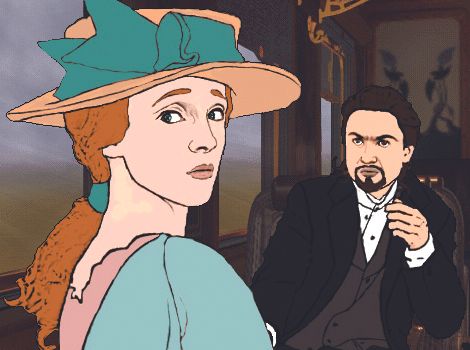
Some of the most beloved and fondly remembered games on PC are graphic adventures. They come in many forms, and vary wildly in quality, but storytelling, puzzle-solving, and a sense of humour are almost always at the forefront. The following games are great examples of all three, whether you’re solving a sinister occult murder in New Orleans or chasing a killer clown through Paris.
Start here
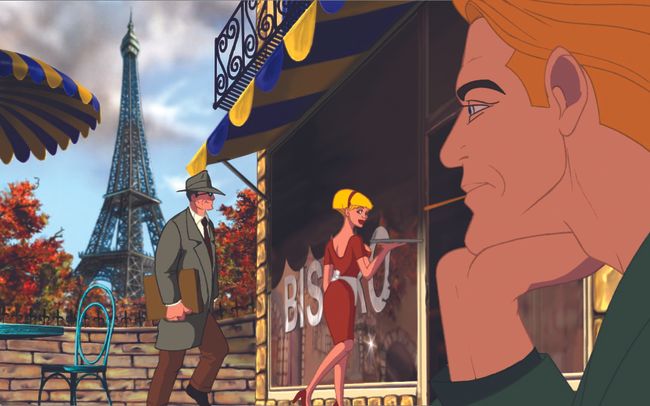
Broken Sword: The Shadow of the Templars
George Stobbart, an American tourist in Paris, is almost killed in a cafe bombing. He takes it upon himself to catch the culprit and, along with journalist Nicole Collard, gets caught up in a conspiracy involving an ancient cult. This atmospheric adventure brilliantly weaves fascinating real-world history into its compelling story, with smart puzzles, a likeable hero, and a genuinely funny script. Broken Sword is an ideal entry point for the genre.
The classic
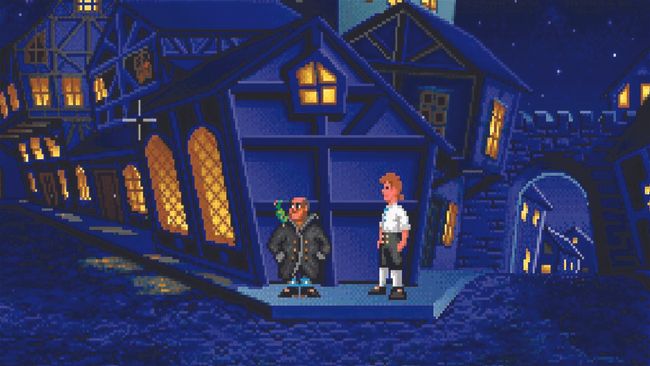
The Secret of Monkey Island
Guybrush Threepwood is a charming, eager, and slightly foolish young lad who wants to become a pirate, a dream you’ll help him realise. This classic adventure from Lucasfilm Games is full of colourful characters, absurd puzzles, and quotable dialogue, and is considered by many to be one of the finest examples of the genre. The insult swordfighting minigame, which sees you exchanging ludicrous insults with rival pirates, is a particular highlight.
Solve a mystery
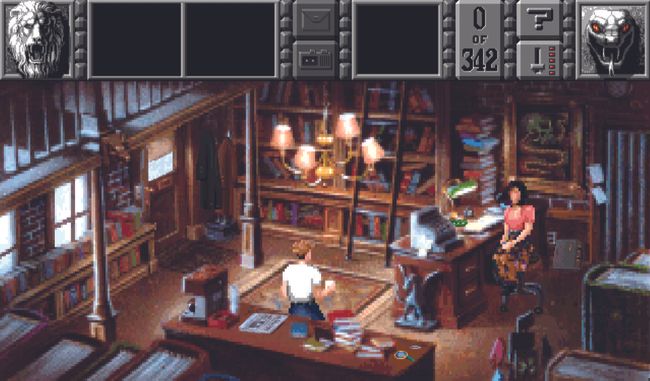
Gabriel Knight: Sins of the Fathers
While there is some humour in this, the first Gabriel Knight adventure, it’s more serious than the other games I’ve mentioned so far. Playing as the titular Knight, voiced by Tim Curry, you investigate a series of sinister occult-like murders in New Orleans. It has a wonderfully dark neo-noir atmosphere, and the deeper Knight digs, the stranger things get. Just avoid the remake and play the original.
Challenge yourself
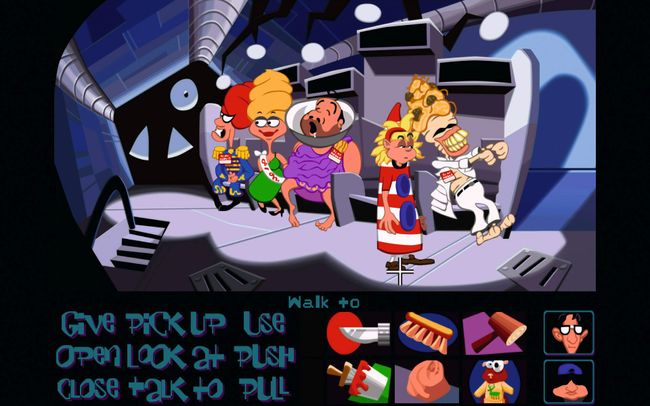
Day of the Tentacle
This adventure is set across three distinct time periods—colonial America, the ‘present’ day (circa 1993), and a far future ruled by evil tentacles—which factors into the puzzle design. The three playable characters can change things in the past to alter the future and trade items across time. But be warned: the game can be maddeningly difficult, and will have you reaching for a guide. But the humour does a good job of keeping the rage at bay.
Take your time
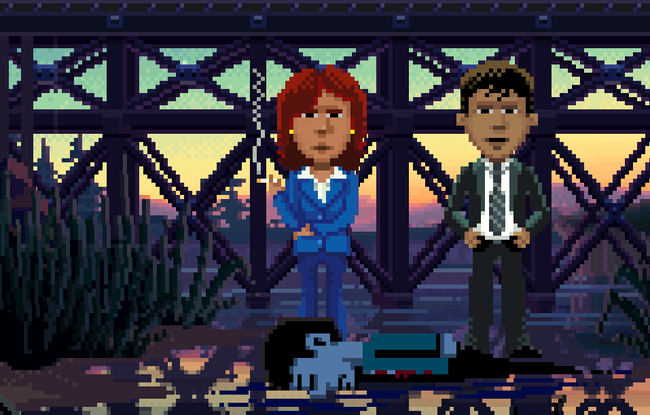
Thimbleweed Park
Developed by adventure game veteran Ron Gilbert, this multi-character epic is set entirely in the fictional town of Thimbleweed Park. Its open structure means you can easily drift away from a puzzle that’s causing you trouble and try another one, which gives it an enjoyably leisurely pace. And the puzzles are incredibly satisfying to solve, avoiding the infuriating leaps of logic that plague many early adventure games—even the good ones.
Get emotional

Life is Strange
This adventure is light on puzzles, but tells one of the best videogame stories of recent years. It follows a girl with the ability to rewind time, which she uses for simple things, like reversing an embarrassing mistake, to bigger things, like saving her town from annihilation.
The purist's choice
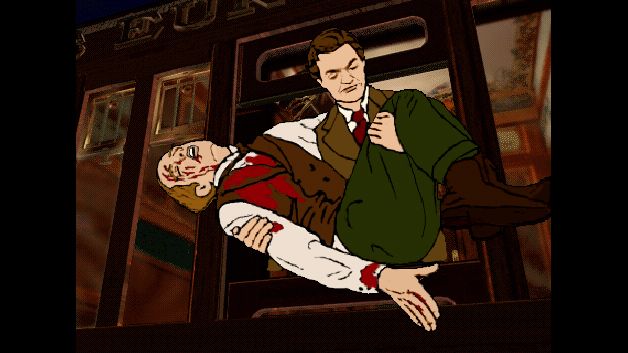
The Last Express
Set on the Orient Express in 1914, days before the beginning of WW1, this adventure is like stepping back in time. It captures the political and social issues of the period and also provides you with an intriguing mystery to solve. The interface and the way you navigate the train are a little confusing, and the real-time structure occasionally makes it feel a little too stressful, so this is one for seasoned adventurers.
Avoid this
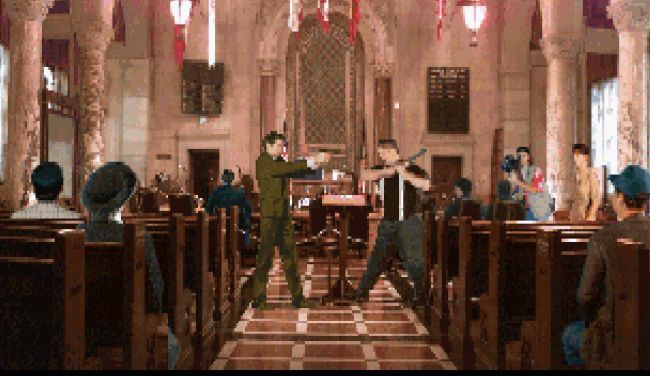
Police Quest: Open Season
There’s some gold in Sierra’s Police Quest series, which cleverly places you in the shoes of a cop, but Open Season is the one to avoid. Despite having an interesting premise—you’re a LA detective investigating a series of murders in the city—it’s ponderous, badly designed, and horribly written. The idea of following police procedure is fun at first, but quickly forgotten about. Not worth it, even as a novelty.
Viata
Arcane
Would play Open Season any day instead of Life is Strange.
A couple of interesting adventure games on the latest IndieGala bundle:
The Last Time (Demo | Kickstarter) $1 Tier
Tales of Cosmos (Free games by the same dev: Queen of the Vesparians, The Old Tree) $4.19 Tier
The Last Time (Demo | Kickstarter) $1 Tier
Tales of Cosmos (Free games by the same dev: Queen of the Vesparians, The Old Tree) $4.19 Tier
Boleskine
Arcane
- Joined
- Sep 12, 2013
- Messages
- 4,045
All the Hidden Corners: A Thrilling New Adventure Game
About this project

A Trans-Siberian Thriller
All the Hidden Corners is an adventure game that recalls the spirit of adventure gaming in the 80's and 90's, but with modern design conventions. We are inspired by games like The Last Express and the Laura Bow Mysteries that challenged traditional adventure game design.
Follow on Twitter and like us on Facebook to help support the game!

A dead language …
In the late 1970s, a linguistics PhD student is sent into the heart of Russia to investigate rumors that a small village may be home to the speaker of a language long thought extinct.
After a disorienting encounter at a Moscow train station, the student comes into possession of a piece of Soviet technology - a Universal Translator - and accidentally boards an unscheduled train bound for the depths of Siberia.
A host of strange passengers …
The train is occupied by 12 other passengers. They do not share a common language, yet there seems to be an unspoken knowledge between them.
By the student’s estimation, the speaker of the dying language is 5 days into Siberia. But will this train reach the right destination? And why is everyone aboard behaving so strangely? The Universal Translator must be used to navigate the weird relationships between the passengers to gain their trust and find out what they know.


All the Hidden Corners is a game about truly understanding the characters. You must explore as much as possible to gather intel. Listening to all of the characters is essential to fully understanding the social situations that transpire, and that is the only way to make the best decisions to gain the most trust while gathering crucial information.

Katsu thinks in the musty study
Communication
The Universal Translator will automatically translate any language being spoken and estimates how much the speaker trusts you. While you are the only one aboard who can understand everyone, you cannot personally speak to anyone - the helmet doesn’t allow for it. The only responses you can give are non-verbal, including nodding, shrugging, or not saying anything at all.

Gaining trust
You have many opportunities to gain (or lose) the trust of the characters on the train. General actions such as keeping your word, not (getting caught) lying, and doing small favors for people will gain the trust of everybody on board the train.
Additionally, all of the passengers have a unique personality you must tailor your responses around to gain the most trust with them. For instance, an insecure character might respond favorably to a lot of nodding while he speaks, while a confident but irritable character may appreciate a more stoic listener.

Social Puzzles
Each puzzle has multiple solutions, which may or may not be available based on how characters feel about you. Often, there is a best path which will gain you the most amount of trust (possibly with multiple characters) while providing you with crucial information. You must use your knowledge of the characters to select which path is best in each scenario.
For example, Vitaly might tell you a secret in front of another passenger who doesn’t speak Russian. “Is he telling secrets?” the passenger asks. Do you respond honestly? Whose trust is more important to you? Is there a way to earn favor with both characters?

The currently revealed cast of characters. More to come!
Time
On the train, the characters have their own schedules. If somebody wants you to meet them after lunch, you better go and find them when lunch is over. If you fail to meet them, you won't get the opportunity again, and their trust for you will be tarnished.

Winning
All the Hidden Corners is designed to be replayed. While gaining the full trust of everybody on board the train is possible, it is not necessary for completing the story and will most likely require multiple playthroughs. At the same time, the more the passengers trust you, the easier you may find your journey to be ...

Felix watches TV in the office
Characters
The characters include a nosey nihilist from Turkey, a Japanese ex-doctor obsessed with aesthetics, a young terminally frightened Polish man convinced he is doomed by a curse, and a host of other eccentrics. What about this train has brought these various personalities together?

From left to right: Falda, Felix, The Student, Vitaly, Katsu
The digital guide booklet
We firmly believe in making games that are designed for and playable by a wider audience. Games that can be enjoyed by people who have never played one before, without sacrificing depth of strategy or fun.
One of the ways we are trying to achieve that goal is by releasing a digital guide booklet with All the Hidden Corners. This booklet will be a complete console-styled manual for the game, that details how the controls work for each available platform, explains the mechanics of the game, and has general tips for how to gain the most trust with people aboard the train.
Additionally, it will feature a complete walkthrough of the game, which will be designed hand-in-hand with the content of the game to ensure that you are able to look up any hints you want for a given puzzle, without the chance of ruining the others, which an online guide not written by us may not take into account.
Additionally, by backing $25 to this project, you will get a Kickstarter exclusive digital guide booklet, which contains additional hints and secrets where even the most obscure chances to gain trust are, as well as additional game artwork. At $35, you will actually get a physical version of that booklet. Neat!

A lot of work has already gone into All the Hidden Corners. We have the story written, and have developed a functioning vertical slice of the features outlined above. Our core code is implemented, and we have worked out the pipelines for all art assets.
This extensive pre-production should ensure that there are no hiccups during the rest of development. With the code done, the story written and the foundation built, the rest of production will be dedicated to creating content, such as implementing puzzles and producing art assets and animations.

Budget
The initial funding goal is what we need to continue to work on the game full-time, after subtracting all the fees from running the campaign. We are just two people living together in Illinois, so rent is cheap. For targets beyond the initial funding goal, we do not currently plan on providing extra content for the game, and will instead be using the money to give the game's presentation additional polish.

Stretch Goals
- $15,000 - A professional artist will be able to help us improve the game's menus and UI
- $20,000 - Additional music for the game
- More stretch goals will come if we reach those listed above!
Other games by the same author:
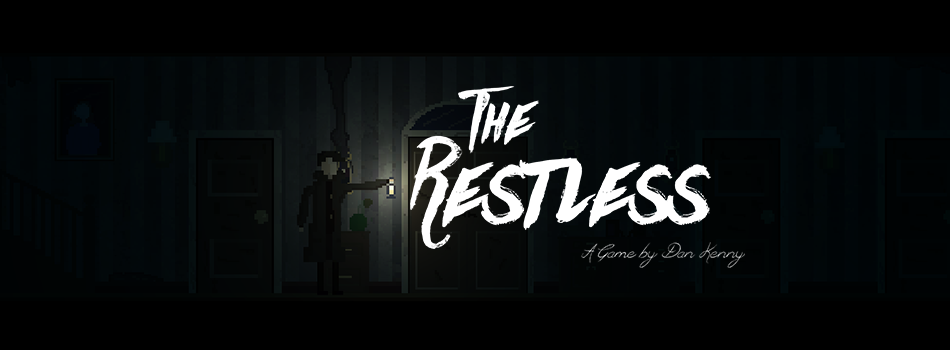
https://dansodic.itch.io/the-restless
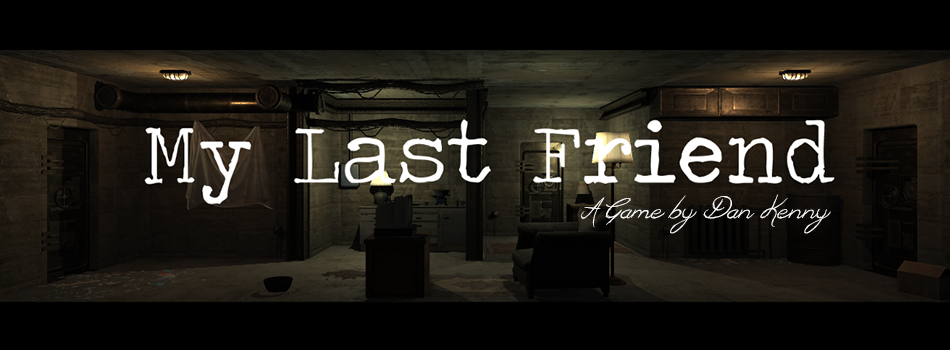
https://dansodic.itch.io/my-last-friend
Boleskine
Arcane
- Joined
- Sep 12, 2013
- Messages
- 4,045
Kickstarter for AdventureX 2017
About this project

AdventureX is a free event taking place in London on the 11-12th Nov 2017, bringing together developers & gamers with a passion for interactive storytelling.
We love graphical adventures; interactive fiction; exploration games; visual novels – just about any game with a great story to tell. Since 2011 we've been inviting gamers and developers from across the globe to share their experiences and exhibit their games.
"What rewards do I get?"
This year, we've commissioned illustrator Simon Reid to create some unique, collectable mementos of AdventureX 2017. Pin-badges proved hugely popular in 2016, so they will be back with 6 new designs.

Badges are 25mm (1 inch) in diameter. All designs subject to change.
This year, we're creating adorable Papercraft Figurines with interchangeable heads - so you can assemble and re-assemble an infinite variety of characters!

OK, the variety of characters is not actually infinite.
You can also grab a Mystery Steam Key from one of the developers supporting this Kickstarter Campaign. It's a pot luck of narrative-driven indie splendour!

"Who will be speaking?"
We will be announcing guest speakers as soon as they are confirmed. So far we look forward to welcoming:
(Speakers and schedule subject to change.)
- Jon Ingold (80 Days, Sorcery!)
- Rolf Saxon (voice of Broken Sword's George Stobbart)
- Dave Gilbert (The Blackwell Series)
- Doug Cockle (voice of Geralt of Rivia, the Witcher Series)
- More TBC...
Previous guest speakers include:
To find out more, check out the highlights of AdventureX 2016:
- Charles Cecil (Broken Sword, Beneath A Steel Sky)
- Rhianna Pratchett (Tomb Raider)
- Emily Short (Galatea)
- Steve Ince (The Witcher, So Blonde)
"Where does the money go?"
AdventureX is a not-for-profit event, and it's free to attend for both visitors and exhibitors. Our biggest overhead is the cost of venue hire, but we also need a budget for promotion, print media, Kickstarter rewards and to ensure the viability of the event in future years.

We build a small contingency to each section of the budget, to help us deal with the unexpected.
"Can I buy a ticket?"
Just like last year, the event is free and non-ticketed. However, for 2017 we are offering a limited edition Guest List reward. Select the Adventure Xtreme or Adventure Xquisite tier to get your name on the Guest List.
Backers on the Guest List will be guaranteed entry as long as they arrive before midday. We think this is the best way of keeping the event free, and making sure people who've travelled a long way don't end up disappointed.
Guest List T&Cs: The Guest List reward is non-transferrable. Backers on the Guest List must arrive before 12.00pm each day to be guaranteed entry.
You don't have to get on the Guest List, you can just arrive early and join the queue. Even if the Guest List sells out, we have reserved spaces to allow people to turn up on the day. Another way to guarantee entry is to volunteer to help run the event (see below).
"Can I exhibit my game / give a talk / help run the event?"
If you've got a narrative driven game, we'd love to hear about it. You can submit your game by completing the Exhibitor Application Form.
Please note: This year we are asking exhibitors to submit a build of their demo with the application. The demo does not need to be super-polished and ready for public consumption, but we need to know that your amazing game concept is more than just a concept.
If you would like to give a talk or a masterclass then please complete the Speakers Application Form.
If you would like to volunteer to help run the event, (welcoming visitors and speakers, running livestreams etc.) please complete the Volunteer Application Form.

Risks and challenges
With a live event like AdventureX, there are always risks. Speakers can pull out, travel can be disrupted, tech failures can scupper presentations.
We have many successful events under our belt, but it's important for us to insure ourselves against unexpected twists and to secure the future of the event. With our experience and your support, we're confident we can deliver another great AdventureX.
V_K
Arcane
Hard pass.We love graphical adventures; interactive fiction; exploration games; visual novels – just about any game with a great story to tell.


















